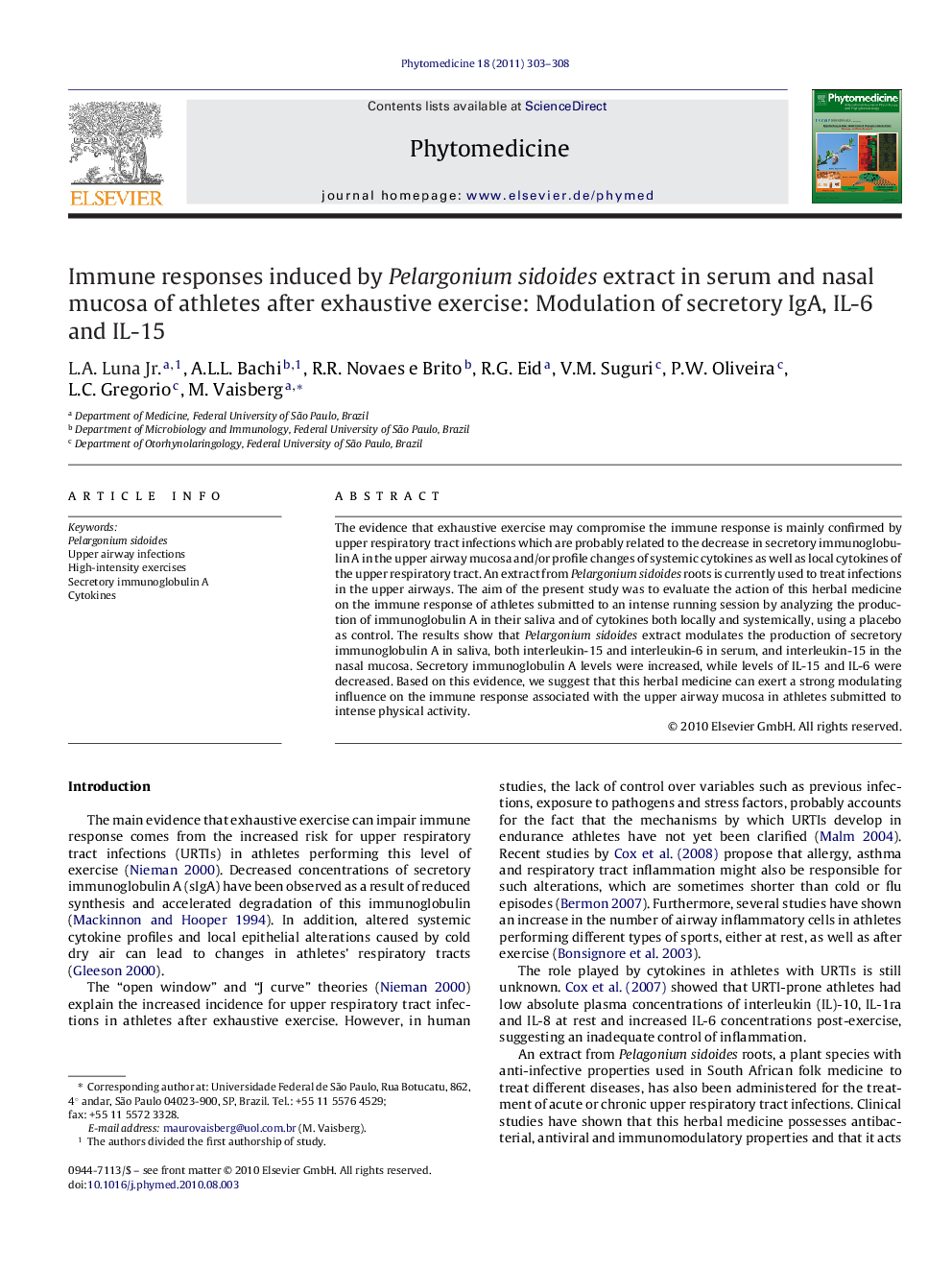| Article ID | Journal | Published Year | Pages | File Type |
|---|---|---|---|---|
| 2496882 | Phytomedicine | 2011 | 6 Pages |
The evidence that exhaustive exercise may compromise the immune response is mainly confirmed by upper respiratory tract infections which are probably related to the decrease in secretory immunoglobulin A in the upper airway mucosa and/or profile changes of systemic cytokines as well as local cytokines of the upper respiratory tract. An extract from Pelargonium sidoides roots is currently used to treat infections in the upper airways. The aim of the present study was to evaluate the action of this herbal medicine on the immune response of athletes submitted to an intense running session by analyzing the production of immunoglobulin A in their saliva and of cytokines both locally and systemically, using a placebo as control. The results show that Pelargonium sidoides extract modulates the production of secretory immunoglobulin A in saliva, both interleukin-15 and interleukin-6 in serum, and interleukin-15 in the nasal mucosa. Secretory immunoglobulin A levels were increased, while levels of IL-15 and IL-6 were decreased. Based on this evidence, we suggest that this herbal medicine can exert a strong modulating influence on the immune response associated with the upper airway mucosa in athletes submitted to intense physical activity.
